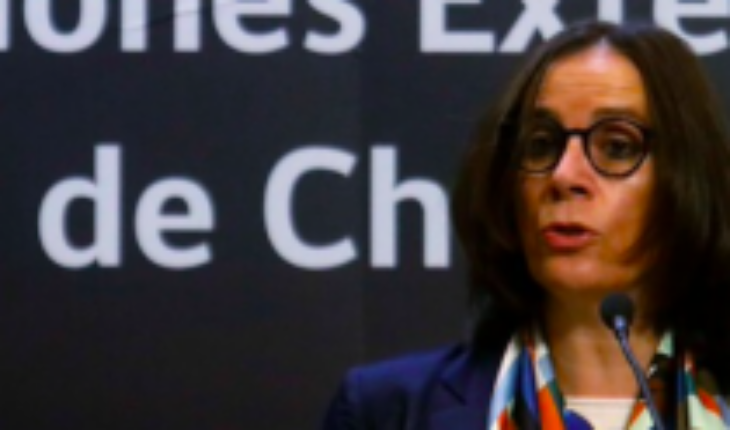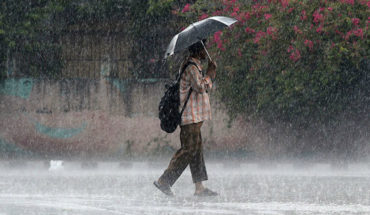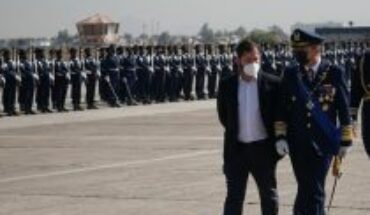In the thirty years of democracy it had not happened that foreign policy generated so much controversy. They highlight the scandal over the revision of free trade agreements, in particular on the TPP11; the criticism of an ambassador 30 years after the transition, which caused unusual annoyance and, most recently: an audio known to the press, about a private meeting of the Chancellor with her immediate entourage.
In the case of the audio, critical opinions stand out, little delicate and profane, which touch the Argentine ambassador, Rafael Bielsa, although, incidentally, also the President of the International Relations Commission of the Senate, Jaime Quintana, and even the Undersecretary of Foreign Affairs (RR). EE).
The attacks for the mess were not long in coming. Of course the opposition forces, and their friends in the press, who do not forgive the slightest slip to the government. But, also, harsh criticism was known from former concertacionistas and, in particular, from former ministers of HR. The U.S., some call themselves supporters of the government.
Qualifiers abounded: amateurism and sloppiness, with embarrassment for Chilean foreign policy. But, beyond insinuations, in this case the responsibility does not correspond to the young people of the Frente Amplio, but to a mature Chancellor, with long experience in international affairs and advisers, diplomats-socialists, career officials, together with the journalist Lorena Diaz, of known works in circles of the Currency, the Parliament and the Foreign Ministry itself. In this case, young people are exempt from guilt.
The neglect of the audio, which ended up in the media, was a silly and questionable fact; but, not of the gravity assigned to it. Because there are facts, much more serious than the audio, that in past years have soiled Chilean foreign policy and, nevertheless, have not produced the scandal we know today.
Indeed, Argentine President Alberto Fernández himself wisely dismissed the seriousness of the leak and assured that he does not assign “any relevance,” including the critical comments of Foreign Ministry officials to the trans-Andean ambassador, regarding the rejection of the Dominga mining megaproject.
It is that Argentines are less complicated than us and, in addition, they love us. We love them less, but we love the little streets of Buenos Aires. In addition, Rafael Bielsa, is not crazy (as said in the audio) and, if he is, he is a cute madman, just like his brother Marcelo.
Thus, forgiveness has been imposed in fact and the chapter on the Dominga affair is closed because it is not something dramatic for Argentines and Chilenisms, so typical of our talk can pass by. The tragedy is over.
In fact there are much more serious issues than audio in our relationship with Argentina, which were not attributed great importance in the past, probably because of that “30-year consensus,” which guided the economy and national politics, and generated complete complacency about foreign policy.
Indeed, it is difficult to forget, during the government of Néstor Kirchner, the appointment as ambassador to Argentina, the Pinochet lawyer Miguel Otero. President Piñera’s blunder installed him in Buenos Aires and the first thing Otero did was openly defend the Pinochet regime, denying human rights violations. His statements were a blow to the heart to the Mothers of the Plaza de Mayo and to the Argentine foreign minister of the time, Jorge Taina, tortured by the henchmen of the dictator Videla, Pinochet’s namesake in the repression of the democrats. Piñera had to withdraw it. This is much harsher than the bad words against Ambassador Bielsa.
On the other hand, during the government of President Lagos, and in the midst of the exit from the Argentine economic crisis, after the Menem government, veiled and sometimes explicit questions abounded from Chilean politicians and economists linked to the Chilean government, in the face of the heterodox economic policy of Néstor Kirchner. But, worse than that were the opinions of Ignacio Walker, expressed extensively in various papers, where he used to qualify, lightly, Peronism as fascism. His appointment, as Foreign Minister (perhaps wrong), forced him to apologize to the Argentine government.
Finally, and perhaps most serious of all, it occurred during the same Lagos government, in November 2003, when two members of Chilean intelligence from the Southern Military Region wereThey returned to the Argentine Consulted in Punta Arenas and tried to steal confidential information. The deputy consul of Argentina discovered two agents who were breaching a safe in the attempt, frustrated, to take the classified documents that were inside, which even had to struggle with them to protect the information. We Argentines forgave us.
Nothing new under the sun when it comes to messes. By the way, it is always good to keep your composure, take care of the forms and avoid affecting our neighbors. It is valid to discuss “the 30 years” or the impasse with the Israeli ambassador and the controversies with Ambassador Bielsa.
I believe, however, that there is something more important, and very worrisome, in the questioning of the Foreign Ministry: the generalized attacks on the economic sphere of foreign policy and the efforts of the Undersecretary of RR.EE., José Miguel Ahumada, to deploy new initiatives in the international economic negotiations, thus fulfilling the programmatic commitments of the Boric government.
Surprisingly, the attacks come not only from the big business world, the right and its media, but also from representatives of the former Concertación, probably ignorant of the role of foreign policy in moving towards a new model of development; Or, perhaps, because simply the establishment, right and center, is satisfied with the natural resource export model in force in our country.
But, the country and the world have changed. And the elite must understand that the current government is not one of continuity, but precisely of transformations and not only social, but also productive.
President Boric’s programme has committed to a transformation of the ongoing development model. He declared the need for a productive change in favor of industrialization, which would make it possible to overcome the pure export of natural resources. And, this, forces to modify the foreign policy followed until now, in particular, some components of the economic opening to the world, either unilaterally or in the Free Trade Agreements (FTA). This is what Ahumada is trying to do; And, it does so against the country’s economic and political establishment.
The policy of international economic relations in recent decades in Chile has been functional to the prevailing neoliberal logic and to the interests of transnationals. And, the indiscriminate opening to the world eliminated all protection for goods, services, investment and the flows of financial capital. This was done first unilaterally and then through FTAs. Thus, capital turned to the exploitation of natural resources and the doors were closed to the indispensable productive diversification that development demands. That is what needs to be changed.
It is necessary to modify the policy of unilateral economic insertion into the world and review the FTAs due to the transformative concerns of the new government, and also due to the emerging protectionism in the world. This will make it possible to overcome the restrictions imposed by FTAs, inter alia, performance requirements, excessive industrial property protection, restrictions on technology transfer and dispute resolution regimes. It is what will open the doors for investment, national and foreign, to move from the extraction of raw materials to new productive activities.
Precisely, in this same line of concern the governments of Mexico, Canada and the United States, met on January 9-10, to promote an import substitution initiative to reindustrialize their economies in order to make North America more self-sufficient. This is a manifest challenge to globalization, characteristic of the last thirty years. This is nothing more than a continuity of the approach, which Trump initiated years ago and which is welcomed in several European countries.
Chile’s fragile productive matrix is affecting the economy, in conditions that globalization closes its doors. Potential GDP has shrunk, productivity is stagnant and international competitiveness has been lost.
The existing productive matrix is the one that prevents improving productivity. Adding value to natural resources, processing goods or generating advanced services is certainly more complex because it requires increasing innovation and incorporation of new technologies. In addition, it requires more qualified labor and therefore the elevation of education for society as a whole. This explains why between 1970 and today the manufacturing sector has gone from representing 25% of GDP to less than 10%.
So, the government’s proposal to go beyond the ext is correct.Conservation of natural resources and therefore tries to promote green hydrogen, add value to lithium, copper and also other natural resources. This is a programmatic commitment to citizens, which is also essential to generate new sources of work, which end the unbearable informality that runs through the streets of our country. More and better work, recovering productivity and growth are the purposes of productive transformation.
However, the elite does not agree to modify the development model. He doesn’t want change. It is defended to prevent changes to the neoliberal model, because big business, and its economists, do not find it comfortable to move from the exploitation of natural resources to the more arduous work that means adding value to goods and services.
However, the economic elite, its media and the politicians who support it must understand that the change of the development model and a foreign policy that accompanies it are decisive not only to generate new business and boost the economy, but also to generate decent conditions of employment, education, technological progress and above all social stability. The audio has been silly, but the serious thing is the commercial questioning of foreign policy.
Follow us on
The content expressed in this opinion column is the sole responsibility of its author, and does not necessarily reflect the editorial line or position of El Mostrador.





